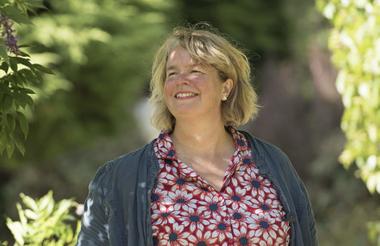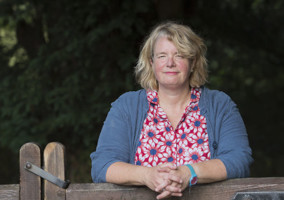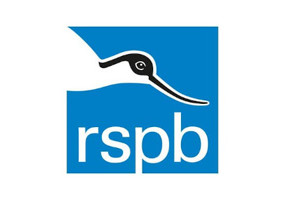Beccy Speight never intended to end up leading the Royal Society for the Protection of Birds (RSPB), one of the oldest and largest charities in the UK.
“It wasn’t the end goal – I’m not a scientist or an ecologist,” she says.
She graduated with an English degree in the 1980s and spent some time teaching the language in Spain afterwards.
With what she calls an “eclectic” professional background, Speight worked in local government and management consultancy before turning to the charity sector.
Despite her successful career up until that point, she felt she “wasn't making enough difference to the things I really cared about”.
So, she phoned up her local National Trust estate and managed to “bludgeon” her way into some work experience. After some time there, she became director for the Midlands National Trust in 2010 and chief executive of the Woodland Trust in 2014.
She joined RSPB as its chief executive in 2019 and feels she has ended up where she wanted to be “spiritually – without having a huge career plan around it”.
Speight loved her time at both the National Trust and Woodland Trust, but wanted to be where the “really big fights were in terms of our natural world”, making RSPB the perfect fit.
“I have a little internal itch where if I see something and I think if only someone would make that happen, or if only somebody would just improve that…I need to get to a place where I think I can make a difference.
“I want to be making the most difference I can to something I really care about. I suppose that's what's driven me as much as anything.”
‘Getting campaigning right is difficult’
RSPB was in the news with other conservation charities last year when it criticised proposed legislation by Liz Truss’ government.
The charity and other groups branded environmental policies such as creating investment zones an ‘attack on nature’.
When asked if it was a difficult decision to take a stance on this, Speight says “yes and no”.
“It was so clear in terms of our cause. I think what is more difficult is that you as a charity have to make sure that your campaigning is done in a way that is in line with the guidance from the Charity Commission.”
The importance of getting things right in campaigning is particularly pertinent because things “happen fast” in the world today, says Speight, with the dominance of social media contributing to this.
“You’re wanting to make sure that you’re comfortable with the positioning and keeping trustees completely across it because it’s got some reputational risk around it. It’s navigating those pressures that is harder and keeping that right. So, the driver is easy; getting it right is the more difficult bit.”
Speight feels last year’s campaign was somewhat successful.
“I think the rhetoric has really changed from government [since then]. That’s good, because one of the things that we were so worried about was the rhetoric was so negative around the environment at the time of those proposals. It was all ‘burdensome regulation’ and ‘the cutting of environmental red tape’.
“But there's still a lot further to go so it's a long game, I suppose.”
Government can overlook RSPB’s cause
Engaging the government in discussions on issues such as the climate and biodiversity crisis can be difficult when there are so many competing concerns in government.
Speight says the current pressure around food insecurity can work against the charity’s cause, as people can jump to binary arguments of it being food or nature, when both are intrinsically linked. For example, she says, vastly changing climates affect food production.
“There are huge pressures in terms of energy, food security and the health system in the UK, so there’s a lot of competing concerns. Trying to get attention paid by the government and enough ambition brought to bear to tackle the biodiversity crisis is really key because, like the climate crisis, it’s on a ticking clock. We don’t have forever to fix it.
“Nearly half of our species in the UK are declining and we’re losing important habitat hand over fist. We don’t have long in which to try and turn it around, so I think that that is a big challenge facing us as a charity.”
Rethinking staff pay during the cost-of-living crisis
Speight says the charity is doing several things to help its staff through the cost-of-living crisis.
It provided a one-off payment to staff earning under £35,000 last year with an option to opt in or out, and around 90% took the money.
The charity also has a mental wellbeing program called RSP Be Well – a pun Speight emphasises that she did not come up with herself.
Generally, Speight says one of the most important things a CEO or senior professional in a charity can do for its staff is to listen to them and to talk about issues openly. Making sure pay rises keep pace with rampant inflation is another pressure, Speight adds.
“We had a whole beautiful pay roadmap that was designed for five years and set out what increases we thought we would be making, but we’ve had to tear that up and think again because we've got to respond to that.
“You can't just ignore that sort of pressure. It's really tough for people and it behoves us as leaders of a big organisation to be taking that really seriously, and to be doing what we can whenever we can.”
‘An incentive to think about the future’
RSPB saw a “little dip” in membership numbers as rising energy prices were announced, money from which makes up about a third of the charity’s income.
Despite this financial impact, Speight says one of her mottos is to “never waste a crisis”. She feels the charity can use the situation to improve its processes.
“As well as it being immediately threatening, it’s a good incentive to really think about the future.”
RSPB aims to work hard to retain its existing membership, but also to consider initiatives for future membership models.
The charity is thinking of ways to incentivise new groups of people into nature conservation, Speight says, to improve its work on diversity and inclusion. She is especially keen to attract more younger people.
While diversity at RSPB has improved since she took up the post, Speight says the charity can do more to attract people to conservation, .
“We just need more of it, because otherwise we will fail in our cause, as part of our cause is to reach out to everybody and help people understand the natural world.”
Speight quotes Senegalese forestry engineer Baba Dioum to illustrate her point: “In the end, we will only conserve what we love, and we will love only what we understand.”
‘The world is still turning’
When the pressures of leading a charity become stressful, Speight says she often looks after her own mental health by going out in nature.
“It helps when you see something beautiful, like a beautiful bird or a tree coming into leaf or a sign of spring and you just think: ‘the world is still turning’.
“I think there is definitely something in that when you connect with nature. You will feel yourself as part of that bigger kind of life force and I think that's really important.”
You can feel like this as part of an organisation like RSPB as well, Speight says. “You’re part of an ecosystem.”
Related articles












